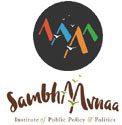
Digital Colonization 2.0
Examining how digitalization is undermining the economy, democracy and sovereignty
We are living in a world where digital technologies seem to be replacing or getting added to the processes for social, economic and political transactions. While those without digital access or literacy may get excluded, others are finding that their access to social, economic and political interactions has become colonized by those who regulate the ecosystems of these digital technologies.
Not only are their identities no longer in their control or possession, their existence has now become a digital footprint that is at the mercy of those who have appropriated their personal and other information which they may not be comfortable in sharing. Civil death by digital is as much a reality as is election and money laundering.
Background
In February 2017, we ran the Digital Colonization workshop to examine the aftermath of the move to digitize the economy following demonetization announced on the 8th of November, 2016. Building on a decade-long planning and implementation of legal and technological reforms, Government of India went into an overdrive promoting digital platforms like Aadhaar Enabled Direct Benefit Transfers, Unified Payments Interface, and GSTN on one hand, and public and private mobile payment applications (like BHIM, PayTM, and Google Pay) on the other, impelling the citizens to change their financial and commercial activities drastically.
Since then, the analysis of the participants of our workshop has unfortunately proven to be quite close to our prognosis: we have been digitally colonized by the ecosystem of Aadhaar.
Riding on the claim that almost all Indians now have an Aadhaar/UID number, a mobile number, and bank account linked to both these numbers – popularly branded as the JAM (Jan Dhan – Aadhaar – Mobile) Trinity – the government created the narrative of a cashless economy and direct benefit transfers (DBT). Every government scheme and most private transactions have been mandating Aadhaar in complete disregard to the law as well as the Supreme Court orders.
In 2018, the government introduced several pretend laws, including the PMLA, to force mobile and bank accounts to be linked to Aadhaar numbers. The Aadhaar became a Trojan horse to allow the ecosystem of enrollment agencies, authentication agencies and user agencies to colonize the citizens of this country; and use this to not only cause their exclusions from subsidies, entitled benefits and services, steal their votes, but also cause their civil death. The Aadhaar payments system is completely unaudited, and no one is able to decipher who the recipients of lakhs of crores of rupees through this payment system are.
About the Workshop
The objective of the workshop is to empower the participants, by assisting them to understand the intricacies of the issues that are at stake in this haphazard rush for digitalization, and, in the process, create a shared vision of digital governance that does not have such overarching tones of subjugation.
The 3-day workshop, ‘Digital Colonization 2.0’, will:
- Create a space to understand the making of the national digital ID system in India and its pernicious ramifications. Facilitated by the resource persons, the participants will explore the colonization and the resulting exclusion, stealing of election resources, money laundering and civil death by digital India, particularly Aadhaar.
- Create a space to explore how those excluded and/or oppressed can think about ways to restore their violated rights.
- Create a space to engage with the dynamics of this modern form of colonization and ways to liberate societies from digitally-induced oppressions.
- Create a space where participants will explore the criteria for evaluating digital solutions.
Who is the workshop for?
- Citizens/Individuals who want to understand digital colonization and make sense of the government’s digital India strategy.
- Those who are, or work with, groups that are marginalized, excluded or oppressed due to causes that stem from the ideas and implementation of ‘digital India’ and Aadhaar.
- Lawyers, journalists, activists, campaigners who bring experience, networks and wisdom to liberate colonized societies.
- Government officers and service providers who want to use technologies to empower citizens from the kind of aforementioned systems.
Resource Persons:
- Dr. Anupam Saraph, Professor and Future Designer, Symbiosis Institute for Computer Studies and Research
- Dr. Usha Ramanathan, Legal researcher and activist
- Prashant Bhushan, Senior Advocate, Supreme Court
- Sumandro Chattapadhyay, Technology and policy researcher
Dates and Venue: 17th to 19th May, 2019, Sambhaavnaa Institute, VPO – Kandbari, Tehsil – Palampur, District – Kangra, PIN 176061, Himachal Pradesh
Contribution towards Programs Costs: We hope that participants would contribute an amount of Rs 3500/- towards workshop expenses. However, for those who cannot afford this amount, please feel free to choose the partial contribution option in the application form.
Language: Primarily English, sprinkled with a little bit of Hindi
How to reach: Please visit: https://www.sambhaavnaa.org/contact-us/
For any other info: WhatsApp or call Shashank: 889 422 7954 (Between 10 am to 5 pm), and email: programs@sambhaavnaa.org
Kindly fill the application form below:
(There is a sincere request we have to make. If you fill the form and get a confirmation from our side for your participation, please do not make cancellations at the last moment, unless there are unforeseen circumstances. So, while filling the form, please try to make sure you do not have anything else planned in advance for the dates of the workshop. It takes some time to process the forms and begin our preparations for the workshop. If you back out after the confirmation, it sends our preparations for a toss, in addition to the time and effort we are expending. Also, many other people who are eager to attend miss out on the opportunity. We shall really appreciate your consideration, and hope you understand the need for such a request.)
